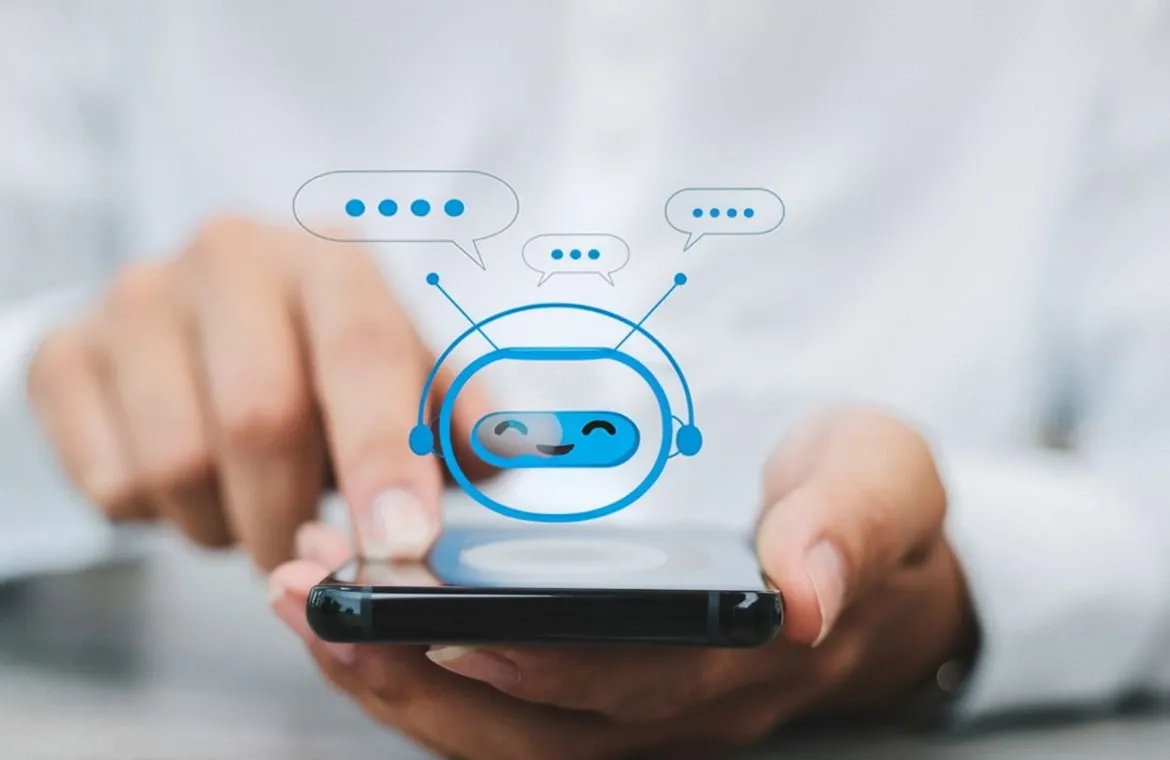Beyond the Chatbot: How Smart AI Actually Makes Customer Service More Human

So, In the past when most companies were struggling to meet customer expectations and their replies were not getting properly to the customers or sometime they were unable to understand the intent of the customers, the modern AI came to the rescue and helped to respond better to the customer needs, because, AI can identify frustrated customers early, allowing businesses to address problems before they escalate.
They say “chatbots are more human than humans themselves”, even though it makes sense in some way,
But without human support, AI is nothing. AI works on interpreting customer input into structural data, which helps understand the intent behind the question, such as "Hey!" I need your help.” Just as simple as that, but AI can’t directly get that input, and that’s why it works best when it supports human agents instead of replacing them. This article will demonstrate how these intelligent systems are transforming customer support and why they'll shape the future of customer-focused service.
The Evolution of Customer Service in the Digital Age
Customer service has undergone significant changes over the last two decades. Traditional models have given way to technology-driven approaches. These changes reflect consumer expectations and businesses' need to provide faster, more efficient service experiences.
From Call Centres to Chatbots
"From ‘Hello, How Can I Help You?’ to ‘Hi! I’m your AI Assistant."
Customer service has undergone significant evolution since the early 2000s. Personal calls and email support were the original focus before call centres were established. The digital era brought automated solutions, and the period from 2010 onwards marked widespread AI integration into customer service.
AI-powered chatbots have revolutionized the way businesses connect with their customers. With immediate responses, the waiting times have decreased substantially, and Customers can resolve issues independently through self-service options.
The Initial Constraints That Drove Smarter Chatbot Innovations
Traditional chatbots often fail to meet the expectations of businesses and customers across various industries today. These simple automated assistants were meant to streamline customer interactions but create more problems than they solve.
- Lack of empathy and personalisation
- Scripted responses and customer frustration
- The need for smarter AI in customer service
The future of customer service combines AI and human abilities to create personalized experiences. Good AI should improve rather than replace human support. It handles routine tasks while humans attend to complex or emotionally charged cases. This balanced approach enables businesses to leverage AI's efficiency in conjunction with human empathy and critical thinking skills.
How Smart AI makes Customer Service more human?
AI technology now bridges the empathy gap that automated customer service struggled with for years. Unlike simple chatbots that follow rigid scripts, advanced AI systems recognise and respond to human emotions. These systems create interactions that feel genuine and attentive.
Understanding tone, context, and emotion
AI detects subtle emotional signals by analysing:
- Voice tone, pitch, and rhythm to identify stress or anger
- Facial expressions during video interactions
- Text patterns that indicate specific emotional states
- Physiological signals that reflect customer feelings
Adapting responses in immediate situations
Smart AI excels in its ability to adjust during customer interactions dynamically. The system modifies its approach when it detects a customer's emotional state. It offers empathetic responses to frustrated users and friendly engagement to satisfied ones. This creates support experiences that feel responsive rather than robotic.
Creating natural, flowing conversations
Conversational AI represents a significant advancement over conventional chatbots. Traditional systems depend on predefined questions and answers. However, conversational AI employs machine learning models trained on massive databases of human conversations. This sophisticated approach helps AI understand the intent behind customer questions and provide customised responses.
The Role of conversational AI in customer service
Conversational artificial intelligence marks a breakthrough in customer interaction management. Companies now utilize this technology to foster meaningful dialogue, rather than simply processing requests through automated support systems.
What is conversational AI?
Conversational AI encompasses technologies that enable computers to understand, process, and respond to text or voice inputs in a natural manner. These systems go beyond simple automation by combining sophisticated technologies to create genuine conversational experiences. The technology uses natural language processing (NLP), natural language understanding (NLU), machine learning (ML), and dialogue management to recognise speech and text inputs, interpret user intent, and generate appropriate responses.
How is it different from simple chatbots?
Traditional rule-based chatbots rely on pre-defined scripts and decision trees that match keywords to provide predetermined answers. Conversational AI chatbots understand context, handle nuanced interactions, and dynamically adapt their responses.
Examples of conversational AI in action
Conversational AI shows its versatility in many ways:
- Automates routine questions while gathering vital context
- Detects customer mood (positive, negative, or neutral) to customise responses
- Supports customers in multiple languages
- Sends updates about order status or payment issues proactively
Banks utilize AI-powered chatbots, allowing customers to check balances, transfer funds, or pay bills through natural language conversations. Retail companies utilise conversational AI for returns, order tracking, and product suggestions.
Real-world benefits of AI in customer service
Using AI in customer service brings measurable, concrete benefits beyond theory. Companies see remarkable improvements in key metrics. They create better experiences while cutting operational costs.
24/7 support with human-like quality
With the rise of Generative AI and NLP (Natural Language Processing), today’s chatbots and virtual assistants aren’t just fast, they’re human-like in their tone, empathy, and problem-solving skills.
Brands like Swiggy, HDFC Bank, Tata Neu, and IRCTC have adopted AI chat systems that understand not only English but also regional languages such as Hindi, Tamil, Bengali, and more.
Reduced wait times and faster resolutions
AI has a measurable impact on service speed. Organisations that optimise AI-powered customer service experience a reduction of almost half a percent in average inbound call handling time. AI-powered platforms help spot website pages that cause unnecessary calls. This allows businesses to improve their self-service options.
Increased customer trust and satisfaction
What matters most is how AI directly associates with improved customer sentiment; mature AI adopters experience significantly higher customer satisfaction scores. Companies that use AI in quality assurance can analyse all customer interactions. This provides actionable feedback tailored to customer needs.
Money talks, too. Conversational AI that interacts with external customers helps boost annual revenue. Companies report that AI helps them handle major growth without sacrificing service quality.
This technology also benefits employees, as AI handles routine tasks, allowing agents to focus on complex, meaningful interactions that require human empathy and judgment.
Challenges and considerations
AI demonstrates impressive capabilities in customer service; however, organisations must address several critical challenges to implement it successfully. Organisations can deploy these technologies better when they understand what matters most.
Accuracy and bias in emotion detection
Speech emotion recognition (SER) technologies don't deal very well with reliability issues. A small group of individuals arbitrarily defines emotions during dataset creation, which causes these limitations. This raises the most significant concerns about accuracy, particularly when these systems influence decisions about customers or employees.
Privacy and ethical concerns
AI-powered customer service raises substantial privacy concerns that extend beyond its technical limitations. The collection and analysis of emotional data raises serious questions about consent and data protection.
Integration with existing systems
Technical hurdles arise when integrating AI with existing customer service platforms. AI simply needs clean, accurate data that accurately represents customers. Poor integration creates disconnected experiences where agents lack the full context of previous interactions.
Future trends in AI customer service solutions
The AI revolution in customer service is now taking shape. Several emerging technologies will redefine how consumers interact with brands.
Voicebots and emotion-aware assistants
Smart voicebots can detect when users are frustrated by the tone of their voices or the speed of their speech. They respond by using a calming tone or connecting users to human agents when needed. These assistants also provide companionship through natural conversations to elderly individuals, especially those with specific health conditions.
Hyper-personalisation through data
AI, generative AI, and immediate analytics create highly customised customer experiences. This goes beyond just using customer names. The system analyzes browsing patterns, location, priorities, and situational factors, including weather conditions.
AI agents are specialised by task.
These specialised agents organise data, provide immediate order updates, and actively interpret customer sentiment. These AI agents deliver impressive results, including round-the-clock availability, informed decisions, enhanced human-agent interaction, faster responses, and reduced operational costs.
Ethical AI and transparency
Trust has become the lifeblood of AI customer service strategy. Clear, explainable AI systems show their reasoning behind decisions, which builds customer confidence. Organisations that use ethical AI practices see real benefits.
Boosting sales through personalised recommendations
AI-powered product recommendations are revolutionizing retail experiences.
For example, Amazon utilizes generative AI to customize product descriptions by highlighting the features each customer values most. Important attributes stand out clearly, if someone often searches for gluten-free products, AI prominently displays this term in product descriptions.
Conclusion
Tomorrow's AI in customer service looks bright. New developments will reshape how you work with customers. A Generative AI and Prompt Engineering course can prove to be the stepping stone in your journey to learn how Smart assistants understand emotions, personalize the services through data insights, and how the specialized AI agents lead the way.
Because the AI tools don't just automate, they make conversations better.
Smart companies see AI as a partner to human agents, not a replacement. AI handles routine questions quickly. It studies customer data and gives consistent service everywhere. This frees your staff to focus where they excel - handling complex situations that need a human touch and judgment.
To know more about how AI is creating an impact, you can look for a Talentsprint Generative AI course which can provide you the useful insights to understand, how AI learns to “listen between the lines” and how businesses are creating deeper, more meaningful interactions at scale, something that was once the sole domain of human agents.
Because the smartest service won’t be the one that sounds most robotic, rather, it’s the one that feels the most human.
Frequently Asked Questions
Q1. Can AI chatbots replace human customer service agents?
While AI chatbots offer advantages like 24/7 availability and instant responses, they cannot fully replace human agents at present. The most effective approach combines AI efficiency with human empathy for complex issues.
Q2. What are the key benefits of using AI in customer service?
AI in customer service provides 24/7 support, reduces wait times, offers faster resolutions, and enhances customer satisfaction. It also allows human agents to focus on complex issues that require empathy and critical thinking.
Q3. How does AI enhance the personalisation of customer service?
AI enhances personalization by analyzing customer data, behavior patterns, and preferences to deliver tailored responses and recommendations. This hyper-personalisation can lead to increased revenues and improved marketing ROI.

TalentSprint
TalentSprint is a leading deep-tech education company. It partners with esteemed academic institutions and global corporations to offer advanced learning programs in deep-tech, management, and emerging technologies. Known for its high-impact programs co-created with think tanks and experts, TalentSprint blends academic expertise with practical industry experience.



